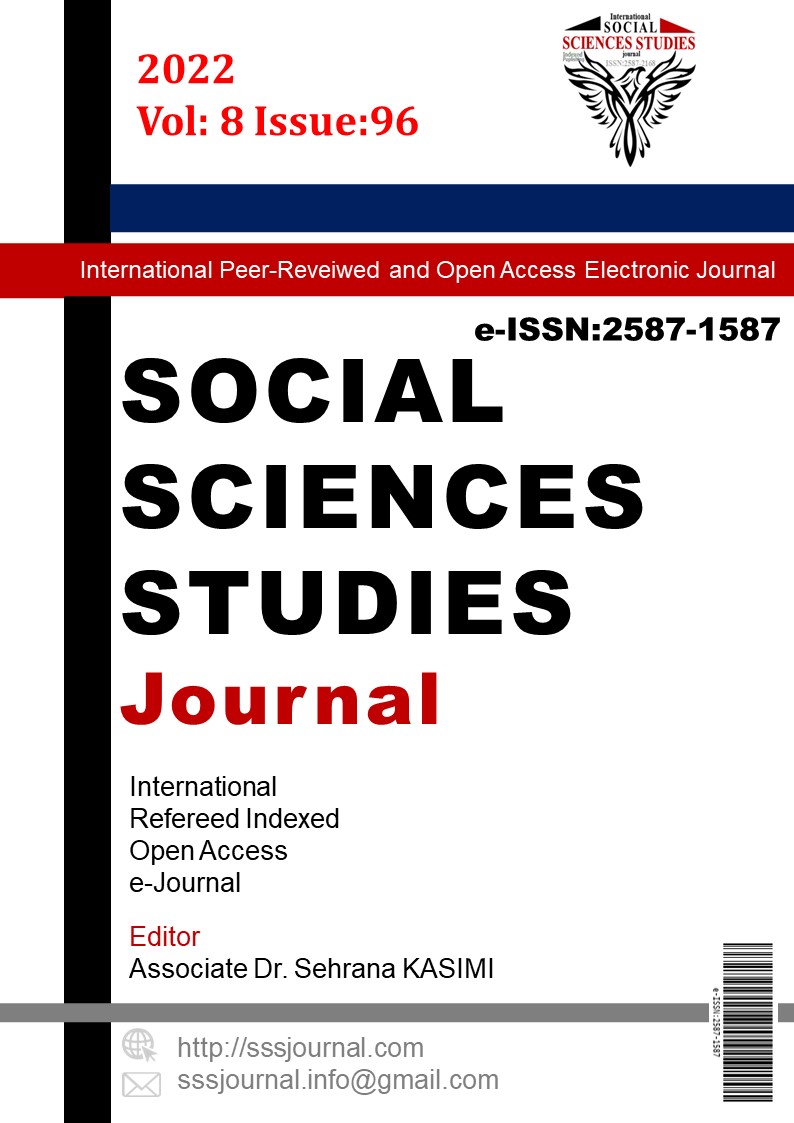EFL University Instructors’ And Students’ Perceptions Of International Posture, L2 Motivational Self And Imagined Communities
Author :
Abstract
In English language teaching, there are various notions that impact on learners’ motivation to learn English and on teachers’ motivation to teach English such as international posture, ideal L2 motivational self and imagined communities. An examination of teachers’ and students’ perspectives on these notions in the same EFL context is a significant research issue is as it is indispensable for both to construct a personal and professional L2 identity in relation to the current sociocultural profile of English speakers in their language education context. Therefore, this paper investigates the perceptions of university instructors working at an obligatory English preparatory program and of students who study at different departments of a state university in terms of these three constructs both psychologically and socioculturally important in the process of language speaker/ teacher identity (re)construction. An open-ended questionnaire was utilised to gain an in-depth understanding of EFL instructors’ and students’ experiences of English language learning/ teaching through a qualitative case study research design. The results of the content analysis revealed that the teachers pass on their experiences to the students and that the socio-economic factors that influence their motivation to teach correlate with the motivational variables that play a role in the students’ desire to improve their English.
Keywords
Abstract
In English language teaching, there are various notions that impact on learners’ motivation to learn English and on teachers’ motivation to teach English such as international posture, ideal L2 motivational self and imagined communities. An examination of teachers’ and students’ perspectives on these notions in the same EFL context is a significant research issue is as it is indispensable for both to construct a personal and professional L2 identity in relation to the current sociocultural profile of English speakers in their language education context. Therefore, this paper investigates the perceptions of university instructors working at an obligatory English preparatory program and of students who study at different departments of a state university in terms of these three constructs both psychologically and socioculturally important in the process of language speaker/ teacher identity (re)construction. An open-ended questionnaire was utilised to gain an in-depth understanding of EFL instructors’ and students’ experiences of English language learning/ teaching through a qualitative case study research design. The results of the content analysis revealed that the teachers pass on their experiences to the students and that the socio-economic factors that influence their motivation to teach correlate with the motivational variables that play a role in the students’ desire to improve their English.
Keywords
- Ardavani, Shahrzad, and Durrant, Philip. “How Have Political and Socioeconomic Issues Impacted on theMotivation of Iranian University Students to Learn English.” English Language Teaching in the Islamic Republic of Iran: Innovations, Trends and Challenges, edited by C. Kennedy, British Council, 2015, pp. 35-45.
- Aslan, Reyhan. “EFL Learners’ Imagined Communities and Investments: Multiple Perspectives from an IntensiveEnglish Language Program in Turkey.” Doctoral Dissertation. The Graduate School of Social Sciences, Middle East Technical University, 2020.
- Baker, Susan C. “Motivation, Language Identity and the L2 Self [Review of the Book Motivation, LanguageIdentity and the L2 Self]”. Journal of Multilingual and Multicultural Development, vol. 32, no. 2, 2011, pp. 201- 202.
- Baker, Will. “From Cultural Awareness to Intercultural Awareness: Culture in ELT”. ELT journal, vol. 66, no. 1, 2012, pp. 62-70.
- Birdsell, Brian. “Gender, International Posture and Studying Overseas.” Journal and Proceedings of GALE, vol. 7, 2014, pp. 29–50.
- Creswell, John W. “Qualitative Inquiry and Research Design: Choosing among Five Approaches” (3rd Ed.). Thousand Oaks, CA: Sage, 2013.
- Csizér, Kata, and Dörnyei, Zoltán. Language Learners’ Motivational Profiles and Their Motivated Learning Behavior. Language Learning, vol. 55, no. 4, 2005, pp. 613–659.
- Dörnyei, Zoltán. “The Psychology of The Language Learner: Individual Differences in Second Language Acquisition.” Mahwah, NJ: Erlbaum, 2005.
- Goharimehr, Nooshin. “Imagined Identities and Communities in an EFL Context.” International Journal of Language, Literature and Culture, vol. 5, no. 3, 2018, pp. 35–40.
- Hyun-Kong, Ji, et al. “L2 Motivational Self System, International Posture and Competitiveness of Korean CTL and LCTL College Learners: A Structural Equation Modeling Approach. System, vol. 72, 2018, pp. 178–189.
- Mystkowska-Wiertelak, Anna, and Pietrzykowska, Agnieszka. “The Ideal L2 Self and International Posture in thePolish Educational Context.” Aspects of Culture in Second Language Acquisition and Foreign Language Learning, edited by J. Arabski, and A. Wojtaszek, Springer, 2011, pp. 251–262.
- Norton, Bonny. “Non-participation, Imagined Communities and the Language Classroom. Learner Contributionsto Language Learning: New Directions in Research, edited by M. Breen, Harlow: Pearson Education, 2001, pp. 156–171.
- Pavlenko, Aneta, and Blackledge, Adrian. New Theoretical Approaches to The Study of Negotiation of Identity inMultilingual Contexts. Negotiation of Identities in Multilingual Contexts, edited by A. Pavlenko, and A. Blackledge, Clevedon, UK: Multilingual Matters, 2004, pp. 1- 33.
- Silverman, David. “Interpreting Qualitative Data: Methods for Analysing Talk, Text, and Interaction.” London: Sage, 1993.
- Tokoz-Göktepe, Fatma. “Attitudes and Motivation of Turkish Undergraduate EFL Students towards Learning English Language.” Studies in English Language Teaching, vol. 2, no. 3, 2014, pp. 314–322.
- Yashima, Tomoko. “Willingness to Communicate in a Second Language: The Japanese EFL Context.” The Modern Language Journal, vol. 86, no. 1, 2002, 54-66.
- Yashima, Tomoko. “International Posture and the Ideal L2 Self in the Japanese EFL Context.” Motivation, Language Identity and the L2 Self, vol. 86, no. 1, 2009, pp. 144-163.
- Yoshizawa, Ayako. Learner Identity Construction in EFL context: Needs for Research Area Expansion andExamination of Imagined Identities in the Imagined Communities. Bulletin of Keiwa College, vol. 19, no. 1, 2010, pp. 35–43.





